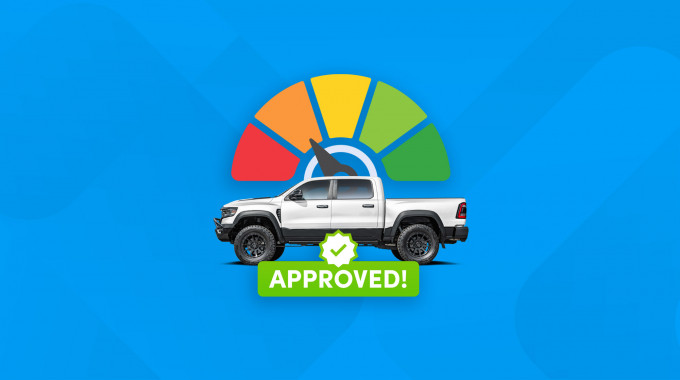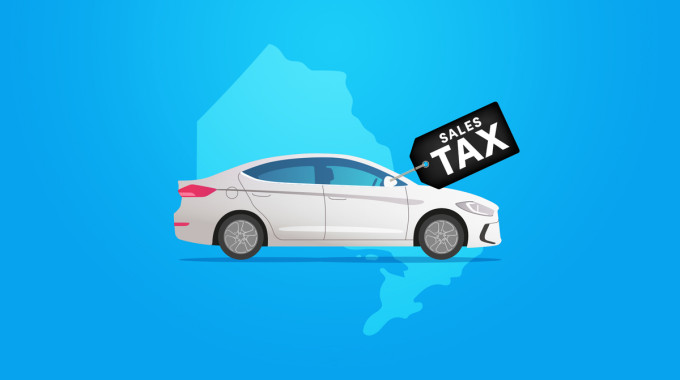
Car Loan Options for People With Disabilities (ODSP, CPPD, and More)
There are more Canadians living with disabilities than you might think.
According to Statistics Canada, 22% of Canadians aged 15 and over—or about 6.2 million people—had one or more disabilities as of 2017. Many of those Canadians receive financial aid in the form of an assistance program.
And just like most Canadians, individuals living with disabilities rely on car loans as means to afford much-needed vehicle transportation. However, getting approved for a car loan (and at a good rate) while on disability can be challenging since individuals receiving government income support often face tougher scrutiny from lenders.
Will disability support or low income disqualify me from getting a car loan?
Being on a disability income support like Ontario Disability Support Program (ODSP), or any other provincial or federal assistance program, does not disqualify you from getting a car loan.
Lenders, however, are cautious when considering a car loan applicant who receives income from a government program. The primary reason for this is because if a person’s primary source of income is from a government program, and they default on a car loan, a lender can’t go after that particular income source.
Finding the car you need and securing a car loan shouldn’t be so difficult, but unfortunately, that’s the reality many low-income individuals face with lenders. The good news is there are options for getting a vehicle loan using disability income support.
What is the ODSP?
The ODSP provides financial assistance to individuals living with a disability in Ontario. These individuals often face additional financial expenses to their cost of living, plus there are many who are limited in their work or can’t work at all due to their disability. The central function of the ODSP is to help provide basics such as groceries, medicine, shelter, and more. What are other disability programs in Canada?
Will a car loan affect my ODSP eligibility?
If the car loan is for your primary vehicle, the loan will not affect your eligibility. Generally, loans are not considered as income if they’re used “to buy approved disability-related items and services,” according to ODSP eligibility.
Transportation is an essential disability-related service, so as long as your car loan is going towards a primary vehicle, you should be good to go. If you require a loan to modify your vehicle, this is also considered an essential disability-related service and would not affect your eligibility.
According to the Ontario government, your primary vehicle is considered an “exempt asset”. Exempt assets are possessions or property that are not factored in when determining ODSP eligibility. It’s also important to note that ODSP does not provide funds specifically for the payment of car insurance. If you’re unsure, talk to your ODSP caseworker about any eligibility questions you may have.
How can I get approved for a car loan on disability?
If you are receiving disability support (as well as low-income support) there are a few things you can do to increase your chances of getting approved for a car loan.
1. Have a garnished source of income
If you’re applying for a loan with an income that is purely from disability support, you may face a tough approval process. However, if the applicant has another income source (i.e. a part-time job), the chances of getting approved for a car loan improve. That’s because this source of income can be garnished by creditors, a process where a creditor is authorized to collect a debt directly from your income.
The longer an applicant has a part-time job and the higher the additional income is, the better chance of loan approval. For example, if you bring in at least $1,800 per month (before taxes) with a job and government income combined, this amount is usually enough to get a lender to consider approving you for a loan.
2. Get a co-signer
Applying for a car loan on government income with a co-signer can greatly increase your chances of being approved. A co-signer could be a close family member or friend who earns a steady wage, has a good job, and solid credit.
A co-signer agrees to share the responsibility of the loan, which means that any delinquencies on the loan will impact both the applicant and the co-signer’s credit report. That could potentially lower both scores and affect the loan approval process for the co-signer in the future.
Adding a co-signer to your application will give lenders something to fall back on if the primary applicant defaults.
3. Check your credit history
Be familiar with your credit history and credit score prior to submitting any official applications with a lender. Financial lenders will consider an applicant’s credit score and history before determining what they’re eligible for. Regardless if a person receives income from a government program or not, an applicant with a healthy credit history and good credit score will have a higher chance of being approved for a loan. Someone with a poor credit score and little credit history will face challenges.
Checking your credit history regularly is also a good idea because there may be errors on your credit report that are affecting your credit score. You can dispute these errors and have them removed. It only takes a couple of minutes to check your credit score for free online.
4. Find the right lender
Find a dealership that specializes in low-income programs. This may require a bit of research on your part. Like with any loan application, your credit score may get dinged every time you submit a finance application, so mitigate the damage by choosing a dealership that can work with your situation. Talk to your plan advisor to see if they have connections to trustworthy lenders who specialize in disability car loans.
Canada Drives is connected with dozens of lenders, including some of The Big 5 banks and lenders that specialize in helping Canadians with low income or low credit. You can get pre-approved as soon as today—at no impact to your credit score. We'll even deliver the vehicle straight to your doorstep and provide a 7-day test-own period.
5. Focus on improving your credit
If you don’t need a new car immediately, you should be thinking about improving your credit score as much as possible. With many lenders, your credit history usually plays a big role in deciding whether or not to approve your application. The good news is, you can boost your credit score substantially in less than 12 months. The better your credit is, the more likely you’ll be able to get approved. You may also benefit from better interest rates.
If you have bad credit, you can improve your credit score by:
- paying off debt.
- keeping balances low.
- making all of your monthly payments on time.
- checking for errors on your credit report and disputing them.
Other criteria for getting a car loan on disability
For any income from a disability program to be considered for a car loan, an applicant must provide additional information to lenders. The applicant must show they have received government income for at least six months and that they will continue receiving the payments for the entirety of the loan term.
An applicant who has a part-time job alongside government income will need to verify recent paycheque stubs, and potentially provide tax records to show the amount of income reported in the last year.
What are other disability programs in Canada?
Similar to Ontario, many provinces in Canada offer support programs for individuals living with a disability. Most of those programs allow one primary vehicle up to a certain value to be used for daily transportation needs and is considered an exemption.
Some provinces have additional low-income support programs that also overlap with how their respective disability programs operate. Here’s a list of some of the most prominent disability support programs in Canada.
CPPD: The Canada Pension Plan Disability benefit is a federal program available to Canadians under the age of 65 and not receiving a retirement pension. Eligible individuals must have a mental or physical disability that prevents them from doing “substantially gainful work”.
SAID: Saskatchewan’s Assured Income for Disability program is available to residents of that province who meet eligibility criteria. This benefit includes three financial components – a living income, a disability income, and an exceptional need income.
PWD: BC’s Persons With Disabilities is a financial assistance program that provides monthly support to individuals, couples, and families. The program’s criteria stipulates that your disability must be severe and be expected to last for at least 2 years. Your income, assets, residency, and other factors will also determine your eligibility.
AISH: Alberta’s Assured Income for the Severely Handicapped is a support program that looks at age, residency, medical and financial criteria. To be eligible for AISH, you must have a medical condition that is likely to remain permanent, and is the main factor limiting you from an ability to earn a living.
Use this handy Benefits Finder from the Government of Canada to find out what benefits you could be eligible for.







